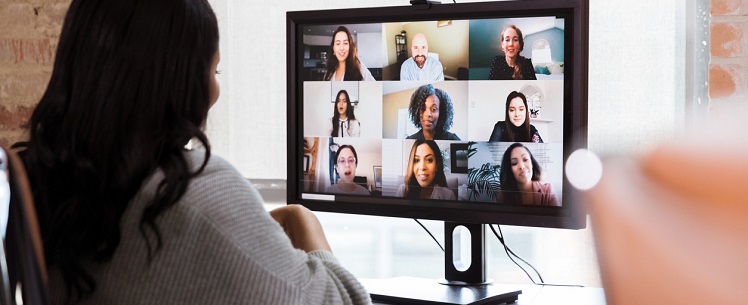Articles
Remote Working Challenges for FP&A
- By Bryan Lapidus, FP&A
- Published: 11/3/2020

What better way to relax and process the 120+ sessions at AFP 2020 than a virtual FP&A Happy Hour, sponsored by CCH Tagetik, Planful and Vena. While the initial chatter included the locations everyone was calling in from and what some people were hiding with virtual backgrounds, the conversation quickly turned to the ways in which attendees see the finance world changing.
WORKING REMOTELY
Over the past year, finance teams have gradually figured out how to accomplish their work remotely, including the routines of forecasting and closing books through VPNs and cloud-based software. About half venture into the office once per week or more, and only person is traveling or work.
“I was thrilled to learn how finance professionals have adapted to the demands of a remote environment…highlighting the collaboration and teamwork being done by finance teams especially as folks are either approaching or have recently completed their first remote budget seasons,” said Carlos Romero Da Silva, enterprise business development for CCH Tagetik.
Remote hiring and onboarding is now a way of life. As Amber Bellaire, director of sales for Vena shared, “In order to keep up with demand, we’ve continued to hire and onboard employees across the business—all remotely. We have been learning every day how we can improve communication with our teams, cross-functional business partners, customers and prospects. Attending AFP 2020 has given me some great ideas on how we can make the best of this new reality.”
Some specific tips include extensive communication reinforced across different channels (even a simple phone call) to explain the work and responsibilities. Attendees recommend creating detailed process documents, and being willing to have lots of calls to network with new colleagues. In the interview process, one attendee noted that remote interviewing can be a hinderance to some, but a benefit to others who may be flustered and stressed during a typical interview process.
The group also dove into the topic of working with and getting the best from our operational partners in the current environment. One member felt the challenge of getting the business to respond to finance’s offer to help, saying, “They always assume that ‘finance is here to cut our budget.’” The ensuing discussion focused on the need to balance the desire to be useful to the business without getting too close and losing your objectivity, and duty to the company’s overall capital deployment.
ANALYSIS ON TIMING
The group eagerly discussed keynote Daniel Pink’s keynote session, The Science of Perfect Timing. Pink’s central thesis is that, for us to perform at our best, we need to consider the timing aspects of how we conduct our work. For example, our cognitive abilities do not remain static over the course of the day, and the daily fluctuations are more extreme than we realize. How do you understand your team? How do you schedule work to take advantage of everyone’s differences?
The Happy Hour discussion drifted into how work gets done, structuring work in a way that explains the outcome rather than strictly defining the approach allows individuals the flexibility to work at their optimum. However, how do you know people are working as they should?
"It comes down to both trust and structure," says Rowan Tonkin of Planful. "How and when we work has fundamentally transformed and continues to evolve. More than ever, this is the time to bring a tremendous amount of empathy to your leadership. Provide your team with a structure that defines what success looks like, then trust your employees to work in a way that balances both company and personal needs. Scheduled check-in points along the way provide an opportunity to track progress together."
One attended noted that in addition to the “when” dimension, he has also started paying attention to the “where” of his work. He is reviewing projects at his desk, reading thoughtfully in his toddler’s nursery, and ideating at the dining room table. As we are all learning in this vitual world, the we have more flexibility on “where” than ever before.
For more insights, listen to Daniel Pink’s keynote session here.
Copyright © 2024 Association for Financial Professionals, Inc.
All rights reserved.

